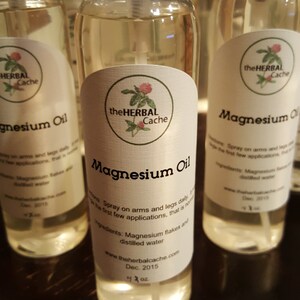

Research has found that the insoluble fiber in flax slows down the release of sugar into the blood and reduces blood sugar levels. Some studies have shown EFAs will enhance the integrity of joint and connective tissues as well as bone density. They have been found to help produce anti-inflammatory substances in the body necessary for proper immune function, collagen formation, and the prevention of some arthritic conditions. EFAs are also components of very important regulatory substances called prostaglandins, which are responsible for transporting oxygen to the tissues, controlling inflammation, synthesizing hormones and maintaining cellular tissues.

Flax seed contains essential fatty acids (EFAs), which are vital for hormone production and the absorption of vitamins A, D, E and K.I feed 2 tablespoons per day to my Arabian and 1 tablespoon per day to my minis for two weeks, twice a year. I like to also follow up the dandelions with two weeks of milk thistle seed powder for its liver detoxifying properties. You can also feed your horse small handfuls of fresh dandelions while they’re in season. Use no more than a rounded tablespoonful, and for no longer than fourteen consecutive days. When using the dried herb form, provide about two heaping teaspoons per day for a week or two at a time. Dandelions actually contain more vitamin A than carrots! I get organic dandelion greens at my local grocery store all year long so don’t have to wait for spring. They are rich in potassium, magnesium, calcium, choline, iron, silica, sulfur, and vitamins A, B, C and D. This medicinal plant has been used throughout history for human conditions such as liver or kidney disorders, including jaundice. Dandelions come to life in the early spring and are a great kidney and liver cleanser, as well as a tonic herb.I don’t give the whole rose hip unless they’ve been soaked and softened. For mature horses, give two to four tablespoons of rose hip powder or a handful of cut and sifted rose hips. For yearlings, use either the powder at the rate of one to two tablespoons per day, or cut and sift rose hips at two tablespoons per day. Rose hips help horses fight off infections, and encourage hoof growth, thanks to their biotin content coupled with flavonoids. They offer thiamine, niacin, riboflavin, and vitamin K as well. Rose hips are one of the richest sources of vitamin C and also contain vitamin A in beta carotene form.Here are just a few of nature’s gifts available to your horse: Once you’ve educated yourself on the nutritional needs of your horse – individualized to your region – and the type of hay you feed, it’s time to look at the natural resources in your area. Many owners are seeking a more natural way to supplement their horses with vitamins, minerals and necessary essential fatty acids. Artificial feed additives that we can’t even pronounce, Round Up ready hay crops, drying agents and GMO seeds are adding to the noxious brew. Some additives compromise immune health, and some create toxicity like colorants, preservatives, synthetic vitamin complexes and highly processed oils. More animal guardians are becoming conscious of the artificial and chemical additives not only in our own diets but that of our animals. You just have to do your research, know what is lacking in your area both in the soil and water, or have your hay tested so you know what to supplement. There are many natural supplements and beneficial ingredients for your horse.


 0 kommentar(er)
0 kommentar(er)
